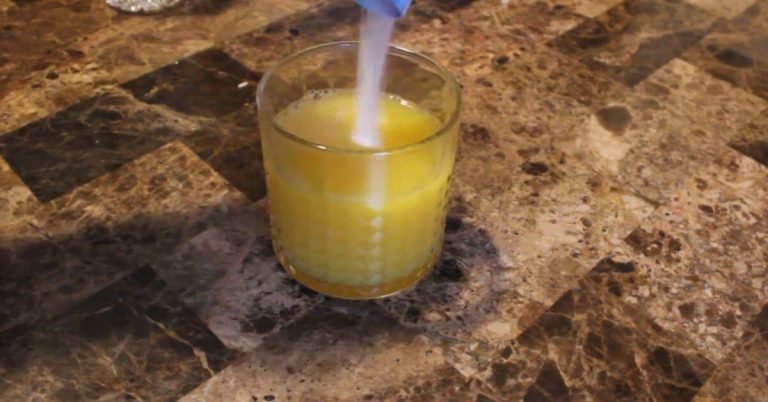Why Does Creatine Taste So Bad? Unveiling the Bitter Truth
Last Updated on October 19, 2023 by Justin Harris
Why Does Creatine Taste So Bad: Creatine tastes bad due to its chemical composition, as it is a derivative of amino acids and not designed to be palatable. Additionally, it does not dissolve well in water, leaving a gritty residue that contributes to its unpleasant taste.
The Perception Of Creatine Taste
Everyone has a different number and type of taste buds, which can affect how they perceive tastes. For example, some people may find that creatine has a mildly salty flavor, while others may experience it as bitter or sour. Additionally, some may even find that creatine has no discernible taste at all.

It’s unfortunate that people give bad ratings because they don’t understand that adding the hydrochloride group to the creatine molecule lowers the pH of the creatine, making it more acidic. The sourness or acidity of Creatine HCl is completely normal.
Creatine HCl (creatine hydrochloride) naturally has a tart taste due to the molecule being an acid. So when mixing unflavored Creatine HCl, it is best to use a flavored drink or juice instead of water.
Creatine’s bad taste is a result of its chemical composition. As a derivative of amino acids, it’s not designed to delight the palate. Moreover, creatine doesn’t dissolve well in water, which can sometimes leave a gritty residue in your mouth, contributing to its less-than-pleasant taste.
The Bitter Truth About Creatine Taste
Why does creatine taste so bad?
The taste of creatine is subjective and can vary from person to person. Some people may perceive a mildly salty flavor, while others may find it bitter or sour. It is important to understand that taste perception is subjective and can be influenced by the number and type of taste buds a person has.
One reason for the unpleasant taste of creatine is its chemical composition. As a derivative of amino acids, it is not designed to be palatable. Additionally, creatine does not dissolve well in water, which can leave a gritty residue in the mouth and contribute to its less-than-pleasant taste.
See More: How Long Does Creatine Last in Water: Uncovering the Secrets
There is also the misconception that creatine hydrochloride (Creatine HCl) tastes sour. The sourness or acidity of Creatine HCl is completely normal due to the molecule being an acid. When mixing unflavored Creatine HCl, it is recommended to use a flavored drink or juice instead of water to mask its taste.
In conclusion, the taste of creatine can be bitter, sour, or even tasteless depending on individual taste perception. Understanding the factors that contribute to its taste can help in finding ways to make it more palatable.
Debunking Misconceptions
How bad does creatine taste?
Everyone has a different number and type of taste buds, which can affect how they perceive tastes. For example, some people may find that creatine has a mildly salty flavor, while others may experience it as bitter or sour. Additionally, some may even find that creatine has no discernible taste at all.
Is creatine supposed to taste sour?
It’s unfortunate that people give bad ratings because they don’t understand that adding the hydrochloride group to the creatine molecule lowers the pH of the creatine, making it more acidic. The sourness or acidity of Creatine HCl is completely normal. Creatine HCl naturally has a tart taste due to the molecule being an acid. So when mixing unflavored Creatine HCl, it is best to use a flavored drink or juice instead of water.
Why does creatine taste so bad?
Creatine’s bad taste is a result of its chemical composition. As a derivative of amino acids, it’s not designed to delight the palate. Moreover, creatine doesn’t dissolve well in water, which can sometimes leave a gritty residue in your mouth, contributing to its less-than-pleasant taste.
Read Also,
- Are 15 Inch Arms Big?
- Are 15.5 Inch Arms Big?
- Are 16 Inch Calves Big?
- Are 14 Inch Biceps Big?
- Are 14 Inch Arms Big?
- Why Doesn’t Creatine Dissolve?
- Why Does Creatine Powder Jump?
- Why Does Creatine Make Me Nauseous
- Why Does My Bicep Cramp When I Flex?
- Why Does Weight Feel Heavier Some Days?
Improving The Taste Of Creatine
How bad does creatine taste?
Everyone has a different number and type of taste buds, which can affect how they perceive tastes. For example, some people may find that creatine has a mildly salty flavor, while others may experience it as bitter or sour. Additionally, some may even find that creatine has no discernible taste at all.
It’s unfortunate that people give bad ratings because they don’t understand that adding the hydrochloride group to the creatine molecule lowers the pH of the creatine, making it more acidic. The sourness or acidity of Creatine HCl is completely normal.
Creatine’s bad taste is a result of its chemical composition. As a derivative of amino acids, it’s not designed to delight the palate. Moreover, creatine doesn’t dissolve well in water, which can sometimes leave a gritty residue in your mouth, contributing to its less-than-pleasant taste.
Why does creatine hydrochloride taste so bad?
Creatine HCl (creatine hydrochloride) naturally has a tart taste due to the molecule being an acid. So when mixing unflavored Creatine HCl, it is best to use a flavored drink or juice instead of water.
Addressing Misconceptions: Does Creatine Taste Bad? The bitterness of creatine becomes more intense as it dissolves on the tongue, leaving an unpleasant taste that lingers.
Addressing Misconceptions: Does Creatine Taste Bad? The sour taste of creatine is a result of its chemical composition.
Guide to mastering the art of improving creatine taste. How to make creatine taste better? Unfortunately, creatine’s chemical composition makes it naturally unpleasant in taste, but there are ways to improve it. Adding flavored drinks or juice instead of water can help mask the tart taste of creatine hydrochloride. Additionally, mixing creatine with other flavored supplements or using flavored creatine products can enhance the overall taste.
Experimenting with different flavors and concentrations can also help find a combination that suits your taste buds. It’s important to remember that taste preferences can vary, so what works for one person may not work for another. Finding the right method to improve the taste of creatine is a trial-and-error process, but with some experimentation, the experience of consuming creatine can be more enjoyable.
Conclusion
The taste of creatine can vary from person to person due to differences in taste buds. Some may perceive it as salty, bitter, or sour, while others may find it tasteless. It’s important to address misconceptions and understand that the sourness or acidity of certain forms of creatine, such as Creatine HCl, is completely normal.
Additionally, the taste of creatine can be improved by mixing it with flavored drinks or juices. Despite its less-than-pleasant taste, creatine’s effectiveness in improving athletic performance makes it a popular supplement choice.






